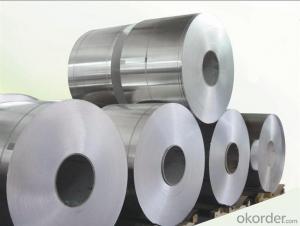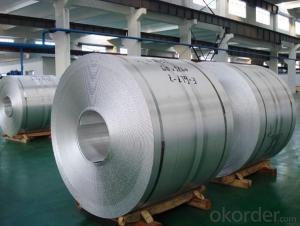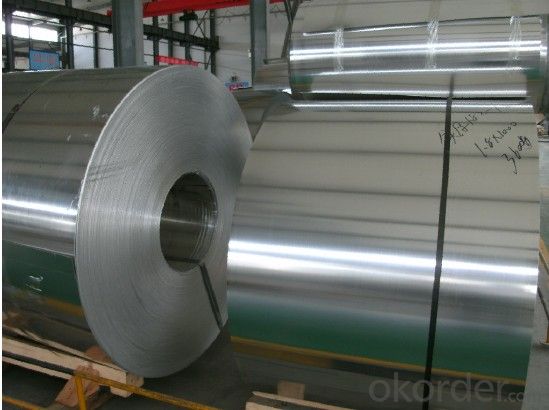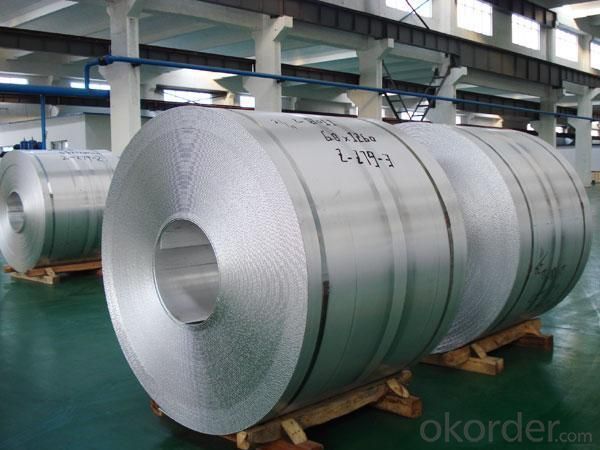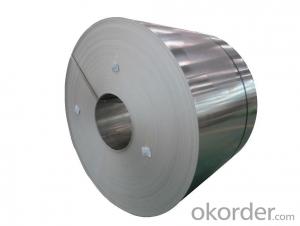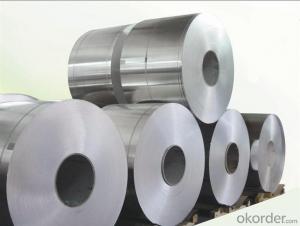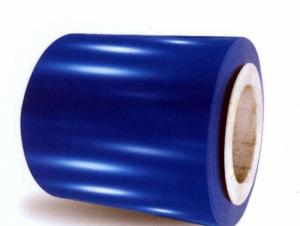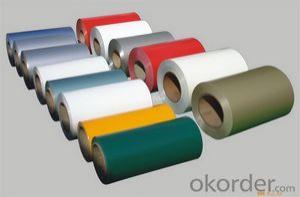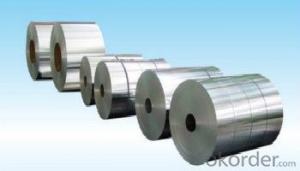Alcoa Aluminum Coils - DC Aluminium Strip in Coil AA3003 Temper F
- Loading Port:
- Shanghai
- Payment Terms:
- TT OR LC
- Min Order Qty:
- 80 m.t.
- Supply Capability:
- 60000 m.t./month
OKorder Service Pledge
OKorder Financial Service
You Might Also Like
1.Structure of Product Description
DC Aluminium Strip in Coil is one semi-finished aluminium material. This strip can be rolled down to aluminium coil,sheet,circle ect. The alloy AA3003 is widly used in beer can. Its weight is much lower than steel. Moreover, it can be recycle used.
2. Main features of the product
a.Competitive price
b.Professional after-sale service
c.Fast delivery time
3.Image
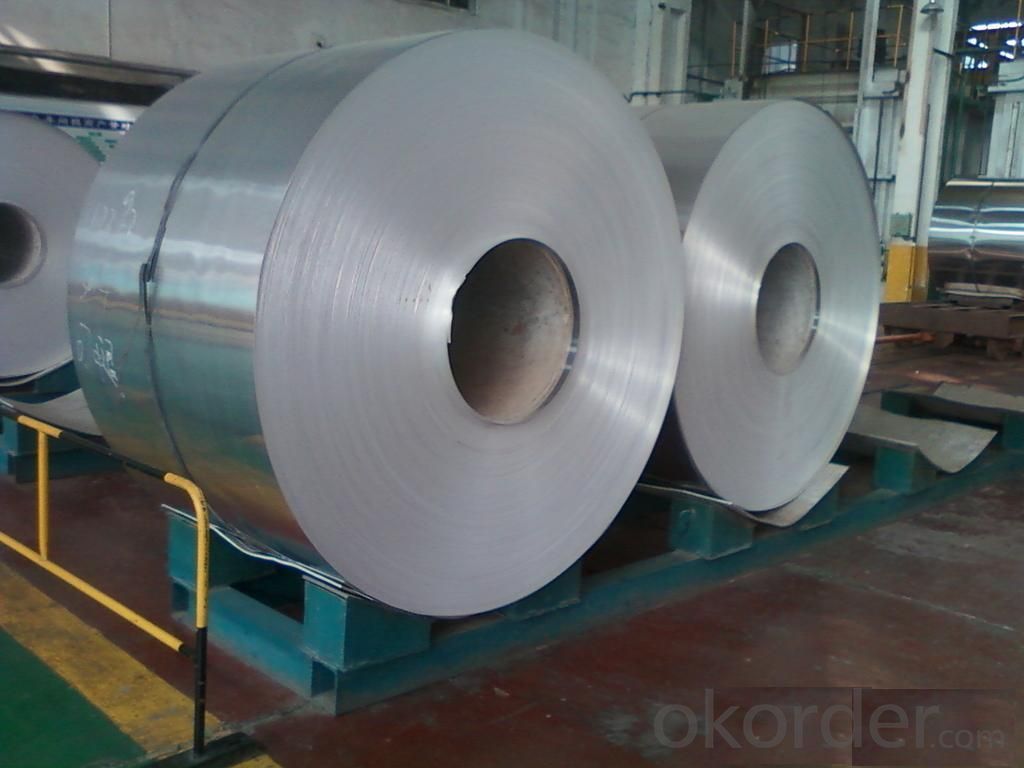
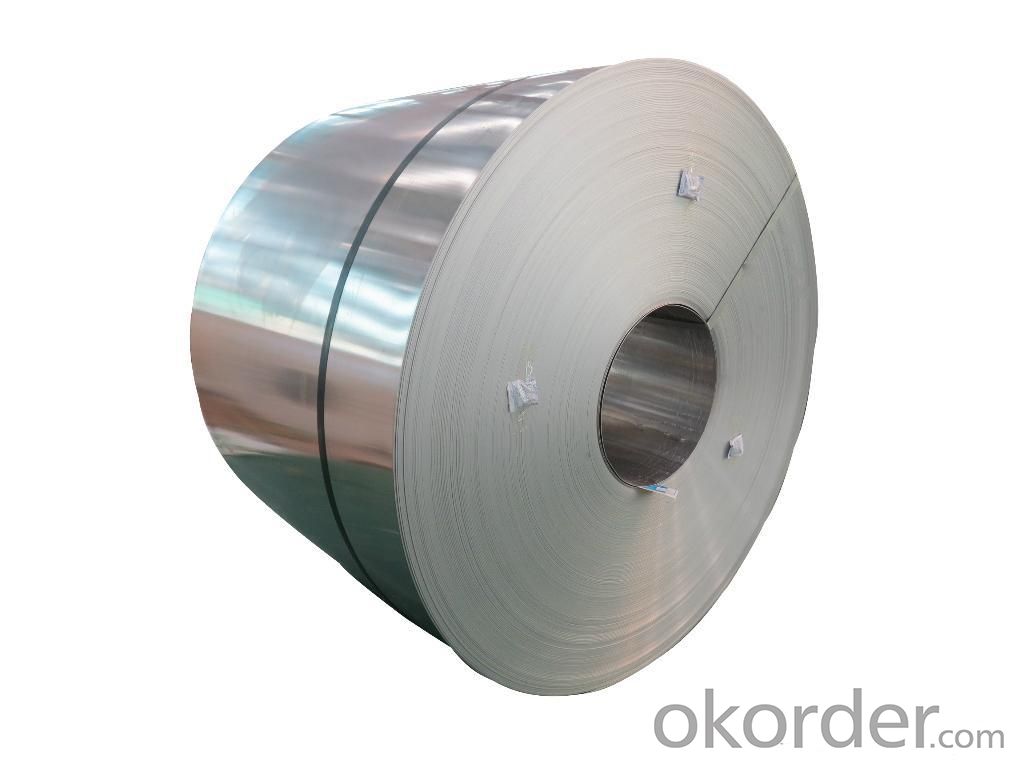
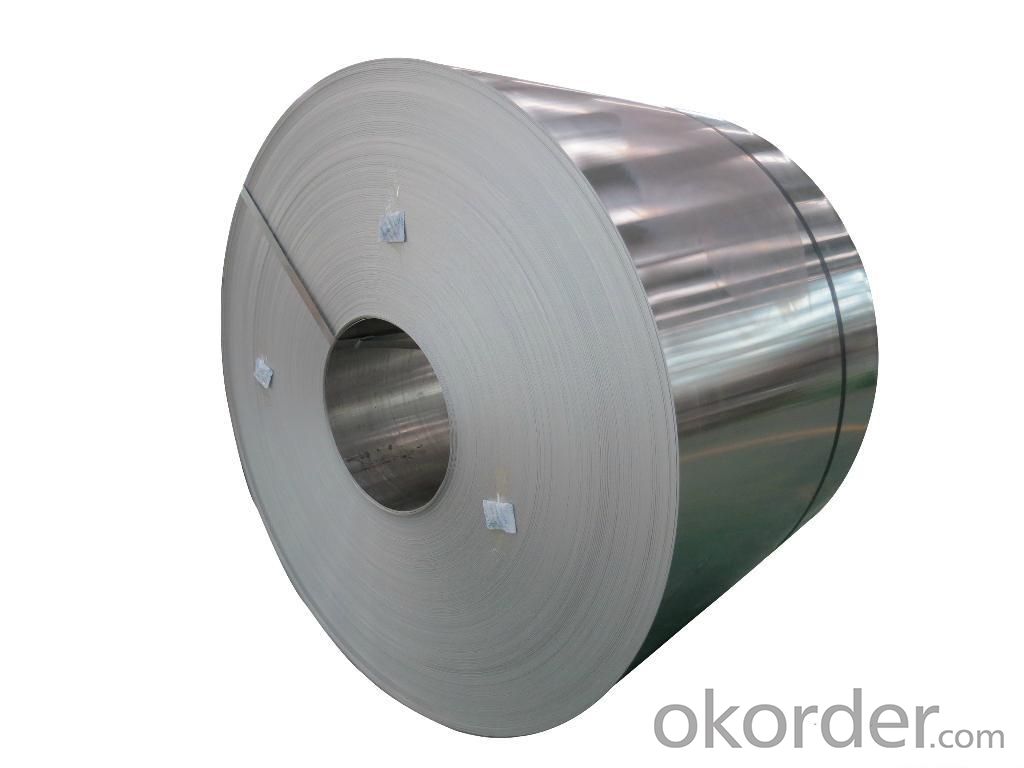
4.Product Specfication
| Alloy | Thickness | Coil Weight | Coil ID | Temper | Usage |
| AA3003 | 3-8MM | 5-6 MT | 610MM | F | Beer Can |
5.FAQ
What is the quality standard?
---Usually our standard is GB3880-2006
What is the largest width?
---It is 2300mm
What is the MOQ?
---Usually we can accept 80 tons.
- Q: What is the mass of 3.45 moles of Aluminum sulfate?Can u explain how?
- Aluminum sulfate is Al2S3, so you got two atoms of aluminum and three of oxygen. Hence the molar mass of aluminum sulfate is: 2X16 (two times molar mass of oxygen) + 3X32 (three times molar mass of sulfur). Keep in mind that the molar mass of an elements equals its mass number. We have 128 grams per mole or 128 pounds per lb-mol. Since you have 3.45 moles of Al2S3 you just have to do 3.45 times 128 = 441.6 grams
- Q: How are aluminum coils used in the production of solar panels?
- The production of solar panels heavily relies on aluminum coils, as they perform essential functions in the construction of photovoltaic modules. These coils are primarily employed as the framing material for the PV module, offering structural support and safeguarding the delicate solar cells from external forces like weather or physical harm. Aluminum's lightweight yet robust characteristics make it an ideal choice for this purpose, as it ensures durability without burdening the overall structure with excessive weight. Additionally, aluminum coils are commonly utilized as the backsheet material in solar panels. The backsheet plays a crucial role in shielding the solar cells from moisture, dust, and other environmental elements, acting as a barrier that prevents potential damage while providing electrical insulation. Aluminum's exceptional resistance to corrosion and its electrical conductivity make it highly suitable for this application. Moreover, aluminum coils are employed in the fabrication of the interconnection system within solar panels. This system comprises conducting wires that establish connections between individual solar cells, enabling the efficient flow of electricity among them. Aluminum's high electrical conductivity ensures minimal energy losses within the panel, facilitating the effective transmission of generated electricity. Furthermore, aluminum coils find utility in the manufacturing of various other components within solar panels, including junction boxes, connectors, and mounting systems. These components contribute to the overall functionality and reliability of solar panel systems. In summary, the extensive use of aluminum coils in solar panel production can be attributed to their lightweight, durable, and corrosion-resistant properties. These coils exhibit versatility and the ability to withstand harsh environmental conditions, making them indispensable for ensuring the efficiency and longevity of solar panel systems.
- Q: Can aluminum coils be used in the production of automotive body panels?
- Yes, aluminum coils can be used in the production of automotive body panels. Aluminum is a lightweight and highly malleable material, making it an ideal choice for automotive applications. It offers a good balance between strength and weight, which can help improve fuel efficiency and overall vehicle performance. Additionally, aluminum has excellent corrosion resistance properties, which is crucial for automotive body panels exposed to harsh environmental conditions. The use of aluminum coils in the production of automotive body panels has become increasingly popular as automakers strive to reduce the weight of vehicles and improve their sustainability.
- Q: This question asks for a comparison between aluminum coil and iron coil, highlighting their distinct properties and uses.
- <p>Aluminum coil and iron coil differ in several aspects. Aluminum coil is lightweight, corrosion-resistant, and has excellent electrical and thermal conductivity, making it ideal for electrical wiring, heat sinks, and food packaging. Iron coil, on the other hand, is heavier, stronger, and more durable, commonly used in construction, automotive, and heavy machinery due to its high tensile strength. Iron also has magnetic properties, useful in applications like transformers and electromagnets. While aluminum is non-magnetic, it is more cost-effective and has better recyclability compared to iron.</p>
- Q: We are working on a new aluminum fixture. It is basically an aluminum spine with many 6061-T6 pins sticking out. Currently we drill the holes inside the spine and hammer the 5/32 6061-T6 pins inside. Is there anyway to cast aluminum with many 6061-T6 pins embedded (they will stick out after the casting)?
- Casting aluminum is one of the least expensive ways to make metallic objects and with a little clean up work and polishing, the results are stunning and shine like the wings of the old WWII bombers. Cast aluminum melts at a hot but relatively low temperature and is easy to carve after you cast it.
- Q: WHERE IS ALUMINIUM FOUND, LIKE WHERE IS IT MINED FROM...10 points tell me quick
- Australia, Brazil, China, India
- Q: Are aluminum coils suitable for electrical insulation?
- No, aluminum coils are not suitable for electrical insulation as aluminum is a conductor of electricity, meaning it allows the flow of electric current rather than insulating it.
- Q: What precautions should be taken when operating a welding torch on aluminum coils to ensure safety?
- <p>When using a welding torch with aluminum coils, it's crucial to follow safety measures to prevent accidents and ensure a safe working environment. Always wear appropriate personal protective equipment (PPE), including heat-resistant gloves, safety glasses, and a welding helmet. Ensure the work area is well-ventilated to avoid inhaling fumes. Use a backdraft hood or fume extraction system to capture and remove welding fumes. Keep the work area clean and free of flammable materials. Regularly inspect the torch for any damage or wear. Use the correct type of welding rod for aluminum and ensure the gas supply is compatible with aluminum welding. Never leave a lit torch unattended and always follow the manufacturer's guidelines for safe operation.</p>
- Q: Some makes like KIA make a point of having aluminum engines. I thought this was for weight, but was more prone to failure, especially in a high mileage car.
- depends. i had a 79 F150, obviously engine made of steel. I let the water run out, the oil run out, the tranny fluid run out, etc. Couldnt kill that truck. I think the aluminum engines built today are fine, depending on the manufacturer. You cant run these engines into the ground though. I have had hondas and toyotas that ran forever with aluminum engines. Chrysler (dodge and plymouth) aluminum engines i have found are junk. I have been told by people who know to never buy a kia. if you can't afford a new car, buy a used one, like toyota, honda, never a nissan though. engines are just as good but the rest of the car is made out of pot metal. mazda is my favorite and many a ford has mazda engineering inside. the ford escape 4 cylinder is what i drive. it has a mazda engine.
- Q: What benefits can be gained from utilizing aluminum coil insulation in various applications?
- <p>Aluminum coil insulation offers several advantages, including high thermal conductivity, which allows for efficient heat transfer. It is lightweight and corrosion-resistant, making it durable and suitable for various environments. The material is also known for its flexibility, which facilitates easy installation and adaptability to different shapes and sizes. Additionally, aluminum coil insulation has good electrical conductivity, which can be beneficial in applications requiring electromagnetic shielding. Its recyclability contributes to environmental sustainability, reducing waste and promoting green practices.</p>
Send your message to us
Alcoa Aluminum Coils - DC Aluminium Strip in Coil AA3003 Temper F
- Loading Port:
- Shanghai
- Payment Terms:
- TT OR LC
- Min Order Qty:
- 80 m.t.
- Supply Capability:
- 60000 m.t./month
OKorder Service Pledge
OKorder Financial Service
Similar products
Hot products
Hot Searches
Related keywords

